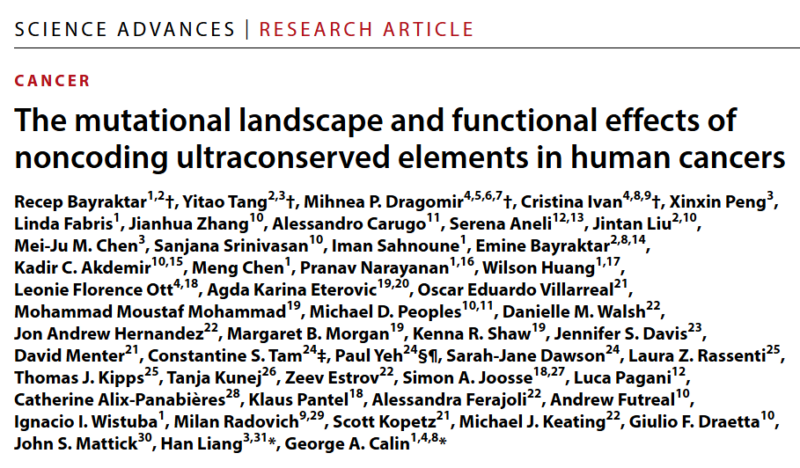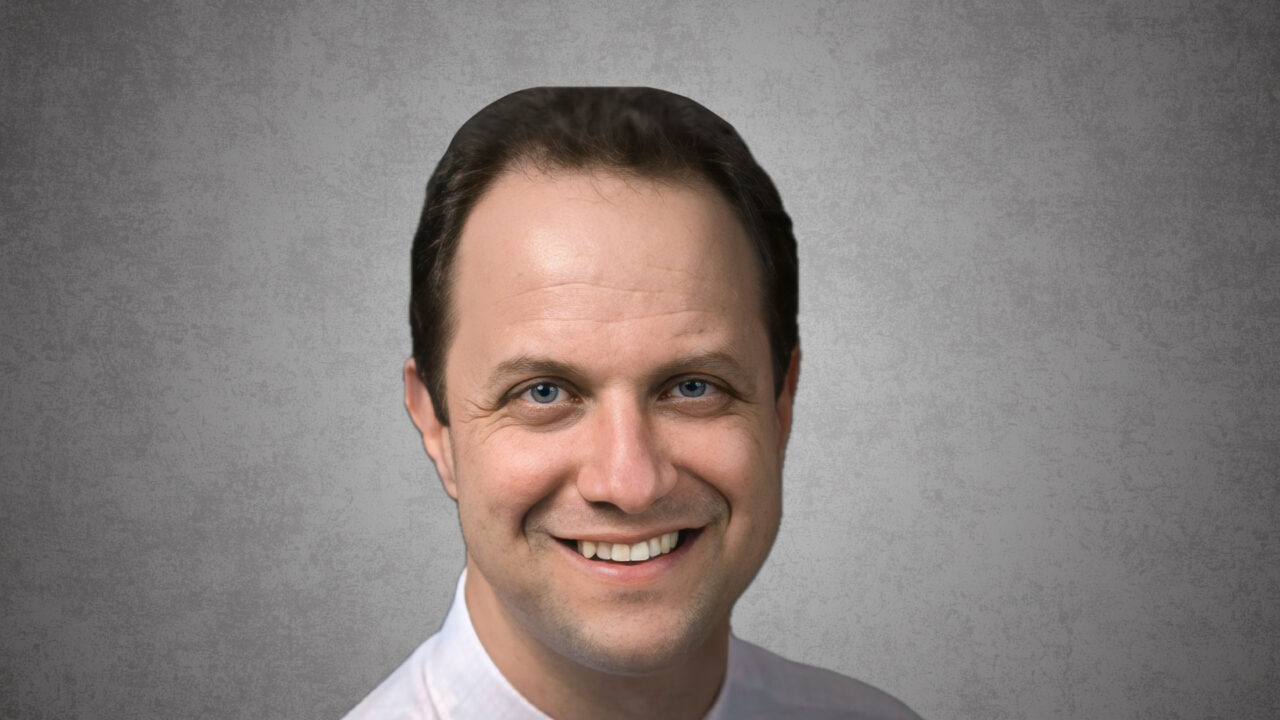George Calin, Professor at MD Anderson Cancer Center, shared an article by Recep Bayraktar, et al. on LinkedIn:
“A heartfelt thank you to Recep, Yitao, Mihnea, Cristina, and the entire team of scientists and clinicians from four continents for their incredible teamwork—now published in Science Advances!
Excellent collaboration with Dr. Han Liang‘s group and many others from MD Anderson Cancer Center.
After more than six years of dedicated effort, we uncovered that the philogenetically silent ultraconserved elements (as they are perfectly conserved between human, mouse and rat) are surprisingly “noisy” in cancer—frequently mutated, with some even exhibiting “driver” functions!
Good to check in your research projects the status of UCEs, you might be surprised by what you find!
Viva genomic ultraconservation!”
The mutational landscape and functional effects of noncoding ultraconserved elements in human cancers.
Authors: Recep Bayraktar, et al.



